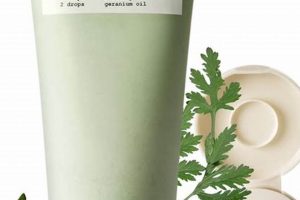Vitamin D, crucial for calcium absorption and bone health, is typically sourced from animal products or produced in the skin upon exposure to sunlight. However, individuals adhering to plant-based diets require alternative sources to meet their daily requirements. Certain types of mushrooms, when exposed to ultraviolet light, synthesize a form of this essential nutrient, offering a dietary solution for vegans.
Adequate intake supports immune function and reduces the risk of certain chronic diseases. Historically, supplementation has been necessary for populations with limited sun exposure or dietary restrictions. Ensuring sufficient levels through plant-derived sources is particularly relevant for maintaining overall well-being and skeletal strength within the vegan community.
The following sections will explore plant-based sources, recommended dosages, and factors affecting absorption, providing a detailed overview of how to obtain and utilize this vital nutrient within a plant-based lifestyle. This includes examining specific food choices and considering the role of supplementation where dietary intake may be insufficient.
Guidelines for Plant-Based Vitamin D Acquisition
The subsequent recommendations offer guidance on obtaining sufficient amounts of this critical nutrient while adhering to a vegan diet. Proper implementation is essential for maintaining optimal health and preventing deficiency.
Tip 1: Prioritize Fortified Foods: Select plant-based milk alternatives, cereals, and orange juice that are fortified. Scrutinize product labels to verify the inclusion and quantity of the added nutrient. Consistent consumption of these products can contribute significantly to daily intake requirements.
Tip 2: Explore UV-Exposed Mushrooms: Certain mushroom varieties, when exposed to ultraviolet light during or after cultivation, generate this nutrient. Identify and incorporate these varieties into the diet. However, ensure the mushrooms are sourced from reputable suppliers who guarantee UV exposure and appropriate handling.
Tip 3: Consider Supplementation: When dietary sources prove insufficient, supplementation may be necessary. Opt for D2 supplements, which are derived from plant sources and suitable for vegans. Consult a healthcare professional or registered dietitian to determine the appropriate dosage and monitor levels.
Tip 4: Understand Vitamin D Forms: Vitamin D2 (ergocalciferol) is the form found in plant-based sources and supplements. While D3 (cholecalciferol) is more effective at raising blood levels, vegan D3 options derived from lichen are available. Research and compare different forms to make an informed choice.
Tip 5: Optimize Absorption: The nutrient is fat-soluble; consume plant-based sources or supplements with healthy fats, such as avocado, nuts, or seeds, to enhance absorption. This strategic pairing maximizes the bioavailability and utilization within the body.
Tip 6: Monitor Vitamin D Levels: Periodic blood tests can determine levels. This allows for the adjustment of dietary intake or supplementation to maintain optimal ranges and prevent deficiency-related health complications. Consistent monitoring is crucial, especially for individuals at higher risk.
Consistent implementation of these guidelines can contribute to adequate levels, supporting bone health, immune function, and overall well-being. Prioritizing fortified foods, exploring UV-exposed mushrooms, considering D2 supplementation, and consistently monitoring are crucial.
The next section will address potential deficiencies and the importance of professional consultation for personalized recommendations.
1. Plant-based Sources
Plant-based sources represent the cornerstone of achieving adequate vitamin D levels for individuals adhering to a vegan diet. These sources, while less prevalent than animal-derived options, are critical for preventing deficiency and maintaining overall health. The availability and effectiveness of these sources dictate the ease and reliability with which vegans can meet their daily requirements.
- UV-Exposed Mushrooms
Certain mushroom species, notably those exposed to ultraviolet (UV) light, possess the capacity to synthesize vitamin D2. This process mimics the human body’s natural production of vitamin D upon sun exposure. The amount produced depends on the duration and intensity of UV exposure, as well as the species of mushroom. While a valuable source, the levels can vary significantly, necessitating careful sourcing and consumption to ensure consistent intake.
- Fortified Foods
Food fortification involves the addition of vitamin D to commonly consumed plant-based products, such as plant-based milk alternatives, cereals, and juices. This strategy aims to increase the nutrient’s availability within the food supply. The effectiveness of fortification depends on the amount of vitamin D added and the frequency with which these products are consumed. Label reading is essential to identify and select products with sufficient fortification levels.
- Lichen-Derived Vitamin D3 Supplements
Although vitamin D3 is primarily derived from animal sources, lichen, a type of algae-fungi symbiotic organism, offers a vegan-friendly source. Supplements derived from lichen provide vitamin D3, the more bioavailable form of the nutrient, making it an effective option for individuals seeking to raise their levels. However, it is crucial to ensure that the supplement is certified vegan and sourced from reputable manufacturers.
- Dietary Diversity and Enhancement
Relying on a wide range of plant-based foods can indirectly support levels. Combining the consumption of UV-exposed mushrooms and fortified foods with a diet rich in other nutrients aids in absorption and utilization within the body. Ensuring adequate fat intake when consuming vitamin D rich or fortified foods is also crucial as vitamin D is a fat-soluble vitamin. While not a direct source, this holistic approach optimizes its utilization.
These plant-based sources represent a spectrum of options for vegans seeking to maintain adequate levels. While UV-exposed mushrooms and fortified foods provide dietary options, lichen-derived supplements offer a more concentrated and reliable source. Effective implementation requires careful selection, consistent consumption, and awareness of factors affecting absorption. These parameters ensures vegans can meet their vitamin D needs effectively and sustainably.
2. Fortification Availability
The accessibility of fortified foods significantly impacts the ability of individuals adhering to plant-based diets to achieve adequate levels of vitamin D. Fortification represents a deliberate effort to augment the nutrient content of commonly consumed products, addressing potential dietary shortfalls. Without widespread fortification, vegans face increased challenges in meeting their daily requirements through diet alone. The availability and extent of fortification directly influence the prevalence of deficiency within this population.
For example, plant-based milk alternatives, such as soy, almond, and oat milk, are frequently fortified with vitamin D to approximate the nutritional profile of dairy milk. Similarly, certain breakfast cereals and orange juices undergo fortification. The presence of a standardized fortification program ensures that these products contain a consistent and measurable amount of the nutrient. However, regional variations in food regulations and manufacturing practices can lead to inconsistencies in the availability and levels of fortification, creating disparities in intake among different geographic locations. Furthermore, consumer awareness and purchasing habits play a crucial role. Individuals must actively seek out and prioritize fortified foods to realize the benefits of fortification programs.
In summary, fortification availability serves as a critical determinant of vitamin D status within the vegan community. Consistent access to adequately fortified foods can mitigate the risk of deficiency, while limitations in availability necessitate a greater reliance on supplementation or other dietary strategies. Understanding the landscape of food fortification, including its strengths, limitations, and regional variations, is essential for promoting optimal health and well-being among vegans.
3. Supplement Necessity
Supplementation often emerges as a necessary consideration for individuals adhering to vegan diets to ensure sufficient vitamin D intake. The limited availability of naturally occurring, plant-based sources and the potential for inconsistent levels within fortified foods contribute to this requirement. The following facets explore the rationale behind the necessity of supplementation within this dietary context.
- Limited Dietary Sources
The naturally occurring, plant-based sources of vitamin D are scarce. UV-exposed mushrooms offer a dietary source, but the vitamin D content varies significantly depending on the species and the extent of UV exposure. The reliance on a single, variable source increases the risk of inadequate intake. The limited range of reliable dietary sources necessitates alternative strategies to meet daily requirements.
- Variability in Fortification
While food fortification aims to address nutrient deficiencies, the extent and consistency of fortification vary widely across products and regions. Not all plant-based milk alternatives or cereals are fortified, and even those that are may contain differing amounts. This variability makes it challenging to consistently achieve adequate levels through fortified foods alone. The lack of standardized fortification protocols contributes to the need for supplementation.
- Individual Absorption Factors
Individual differences in absorption capacity influence the effectiveness of both dietary and supplemental vitamin D. Factors such as age, gut health, and overall dietary composition can affect how well the body absorbs and utilizes the nutrient. Individuals with compromised absorption may require higher doses of vitamin D to achieve optimal levels, further emphasizing the necessity of supplementation.
- Seasonal Variations in Sunlight Exposure
The human body synthesizes vitamin D upon exposure to sunlight. However, seasonal variations in sunlight intensity and duration, particularly at higher latitudes, limit the body’s ability to produce sufficient amounts year-round. During winter months, when sunlight exposure is minimal, supplementation becomes particularly important to maintain adequate levels. This seasonal dependency reinforces the need for a consistent supplementation strategy.
Collectively, these facets illustrate the challenges associated with obtaining sufficient vitamin D solely through diet and sunlight exposure within a vegan lifestyle. The limited range of plant-based sources, the variability in food fortification, individual absorption factors, and seasonal variations in sunlight exposure all contribute to the necessity of supplementation. A proactive approach to supplementation, guided by healthcare professionals and informed by individual needs and circumstances, is essential for preventing deficiency and promoting optimal health.
4. Absorption Factors
The bioavailability of vitamin D from plant-based sources is intrinsically linked to a series of physiological and dietary factors. These determinants influence the extent to which the nutrient is absorbed from the gastrointestinal tract and subsequently utilized by the body. Understanding these absorption factors is crucial for optimizing vitamin D status in individuals adhering to vegan diets.
- Fat Solubility and Dietary Fat Intake
Vitamin D is a fat-soluble nutrient, necessitating the presence of dietary fat for optimal absorption. The concurrent consumption of plant-based vitamin D sources, whether from UV-exposed mushrooms or fortified foods, with healthy fats such as those found in avocados, nuts, or seeds, enhances its absorption. Insufficient fat intake can impede the absorption process, reducing the effectiveness of dietary vitamin D intake.
- Gastrointestinal Health and Integrity
The health and integrity of the gastrointestinal tract play a critical role in nutrient absorption. Conditions such as inflammatory bowel disease, celiac disease, or other disorders that compromise intestinal function can impair vitamin D absorption. Maintaining optimal gut health through a balanced diet and lifestyle practices supports efficient nutrient uptake, including vitamin D from plant-based sources.
- Interactions with Other Nutrients
The absorption of vitamin D can be influenced by the presence or absence of other nutrients within the diet. For instance, adequate magnesium levels are necessary for the activation and utilization of vitamin D. Deficiencies in other essential nutrients may indirectly affect vitamin D absorption and metabolism, highlighting the importance of a balanced dietary intake.
- Age and Physiological Status
Age and physiological status can influence vitamin D absorption. Older adults, due to age-related changes in gut function, may exhibit reduced absorption capacity. Similarly, pregnant or lactating individuals have increased vitamin D requirements, potentially necessitating higher intakes or supplementation to compensate for enhanced physiological demands.
These absorption factors collectively underscore the complexity of achieving optimal vitamin D status through plant-based sources. Dietary modifications, attention to gastrointestinal health, and consideration of individual physiological status are crucial for maximizing the bioavailability of vitamin D and mitigating the risk of deficiency in vegan populations.
5. Deficiency Risks
Inadequate intake of vitamin D, a crucial nutrient for bone health, immune function, and overall well-being, presents significant health concerns, particularly for individuals adhering to vegan diets where primary sources are often limited. Understanding the specific risks associated with this deficiency is essential for proactive mitigation.
- Impaired Bone Health and Increased Fracture Risk
Vitamin D plays a pivotal role in calcium absorption, a mineral vital for maintaining bone density. Insufficient levels of vitamin D hinder calcium absorption, leading to weakened bones and an elevated risk of fractures, especially in older adults. This risk is amplified in vegans who may already have lower calcium intake due to the exclusion of dairy products. For example, studies have demonstrated a higher prevalence of stress fractures among vegan athletes with suboptimal vitamin D status. Maintaining adequate intake through fortified foods or supplementation is crucial for preserving skeletal integrity.
- Compromised Immune Function
Vitamin D modulates the immune system, influencing both innate and adaptive immune responses. Deficiency has been linked to an increased susceptibility to infections, including respiratory illnesses. Immune cells, such as macrophages and T cells, possess vitamin D receptors, highlighting the direct impact of this nutrient on immune function. Research suggests that supplementation may reduce the risk of upper respiratory tract infections, especially in individuals with low baseline levels. Thus, ensuring adequate vitamin D is vital for immune resilience in the vegan population.
- Increased Risk of Certain Chronic Diseases
Mounting evidence suggests a correlation between vitamin D deficiency and an increased risk of various chronic diseases, including cardiovascular disease, type 2 diabetes, and certain types of cancer. While the exact mechanisms remain under investigation, vitamin D’s role in regulating cellular growth, inflammation, and immune function may contribute to disease prevention. Observational studies have shown an inverse association between vitamin D levels and the incidence of these conditions. Although further research is needed to establish causality, maintaining adequate levels is a prudent strategy for promoting long-term health in vegans.
- Muscle Weakness and Pain
Vitamin D influences muscle function, and deficiency can manifest as muscle weakness, aches, and pains. This can significantly impact physical performance and quality of life. Vitamin D receptors are present in muscle tissue, indicating a direct effect on muscle physiology. Elderly individuals with low vitamin D levels are at a higher risk of falls due to muscle weakness. Addressing deficiency through supplementation can improve muscle strength and reduce the incidence of falls, thereby enhancing mobility and independence.
Collectively, these deficiency risks underscore the importance of proactive strategies for maintaining adequate vitamin D levels within the vegan population. Regular monitoring, informed dietary choices, and appropriate supplementation are essential for mitigating these risks and promoting optimal health and well-being. It is evident that individuals need to ensure regular intake through UV-B exposed mushrooms, fortified foods, and potentially a supplement.
Frequently Asked Questions About Vegan Vitamin D
The following questions address common concerns regarding vitamin D intake within a vegan diet. These answers provide concise, evidence-based information to promote understanding and informed decision-making.
Question 1: What are the primary plant-based sources of vitamin D suitable for vegans?
The main plant-based sources include UV-exposed mushrooms and fortified foods, such as plant-based milk alternatives and cereals. Certain lichen-derived supplements also provide a vegan-friendly form of D3.
Question 2: How can vegans ensure they are obtaining sufficient amounts of vitamin D through diet alone?
Consuming UV-exposed mushrooms regularly and prioritizing fortified foods can contribute to adequate intake. However, individual requirements vary, and supplementation may be necessary.
Question 3: Are all types of mushrooms a reliable source of vitamin D for vegans?
Not all mushrooms contain significant amounts. Only those exposed to UV light during or after cultivation synthesize vitamin D2 in appreciable quantities.
Question 4: What factors can affect the absorption of vitamin D from plant-based sources?
Dietary fat intake, gastrointestinal health, and interactions with other nutrients can influence absorption. Concurrent consumption with healthy fats enhances bioavailability.
Question 5: Is vitamin D2 as effective as vitamin D3 for raising blood levels in vegans?
While D3 is generally more effective, vegan D3 options derived from lichen are available. D2 is also a viable option, particularly when taken at appropriate dosages.
Question 6: What are the potential consequences of prolonged vitamin D deficiency in vegans?
Deficiency can lead to impaired bone health, increased fracture risk, compromised immune function, and an elevated risk of certain chronic diseases.
Understanding these core aspects is paramount for vegans to proactively manage their intake and mitigate the risks associated with deficiency. Monitoring vitamin D levels via regular blood tests is recommended.
The subsequent section will provide practical guidance for implementing these strategies into daily dietary habits and lifestyle choices.
Conclusion
The preceding analysis underscores the importance of strategic approaches to obtaining sufficient vegan vitamin D. The reliance on UV-exposed mushrooms, fortified foods, and potentially, lichen-derived D3 supplements, forms the cornerstone of maintaining adequate levels within a plant-based lifestyle. Consistent monitoring and awareness of factors affecting absorption are essential for mitigating the risk of deficiency and supporting overall health.
The information presented serves as a foundation for proactive management of micronutrient status within the vegan community. Continued research and dissemination of evidence-based guidance are crucial for optimizing health outcomes and promoting informed dietary choices. Prioritizing bone health, immune function, and long-term well-being through diligent attention to vitamin D intake remains a critical consideration.







